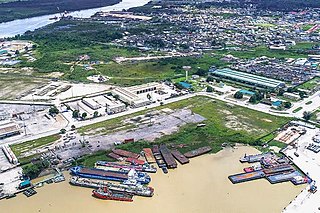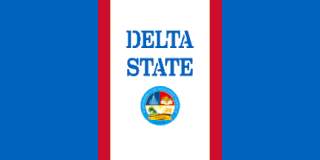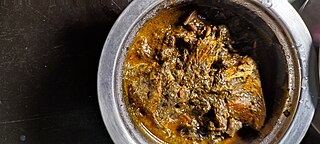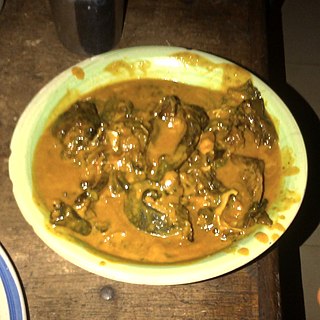Related Research Articles

The city of Warri is an oil hub within South-South Nigeria and houses an annex of the Delta State Government House. Warri City is one of the major hubs of the petroleum industry in Nigeria. Warri, Udu, Okpe and Uvwie are the commercial capital of Delta State with a population of over 311,970 people in 2006. The city is the indigenous territory of Itsekiri, Urhobo and Ijaw people.

Delta State is a state in the South-South geopolitical zone of Nigeria. Named after the Niger Delta—a large part of which is in the state—the state was formed from the former Bendel State on 27 August 1991. Bordered on the north by Edo State, the east by Anambra and Rivers states, and that south by Bayelsa State while to the west is the Bight of Benin which covers about 160 kilometres of the state's coastline. The state was initially created with 12 local government areas in 1991 which was later extended to 19 and now has 25 local government areas. Asaba as its state capital located along the River Niger on the northeastern end of the state, while the state's economic center is Warri on the southwestern coastline.

The Niger Delta is the delta of the Niger River sitting directly on the Gulf of Guinea on the Atlantic Ocean in Nigeria. It is located within nine coastal southern Nigerian states, which include: all six states from the South South geopolitical zone, one state (Ondo) from South West geopolitical zone and two states from South East geopolitical zone.

Isoko South is a local government area (LGA) in the Isoko region of Delta State, Nigeria. With its headquarters at Oleh, Nigeria, it is one of the two local governments that make up the Isoko region. The other is Isoko North, which has its headquarters at Ozoro.
Isoko is a region of Delta State and Bayelsa state in southern Nigeria and is inhabited by an ethnic group of the same name, the Isoko people. The region is divided into two Local Government Areas, Isoko North and Isoko South.
Igbide is an Isoko clan located in the Isoko South Local Government Area of Delta State, Nigeria.
Ozoro is a city and the headquarter of Isoko North Local Government area of Delta State, Nigeria. It is one of the two administrative units in the Isoko region of [Delta State, southern Nigeria. Ozoro had been incorrectly spelt Usoro in some older maps of Nigeria. Ozoro, the capital city of Isoko North, has a population of approximately 186,000 inhabitants.

Joseph Ayo Babalola was a Nigerian Christian minister and the leader of the Christ Apostolic Church, popularly called CAC in Nigeria. He was a healing evangelist.

Isoko people are an ethnolinguistic group who inhabit the Isoko region of Delta State and Bayelsa State, Nigeria. They are people of southern Nigeria, near the northwestern Niger delta. Delta State and Bayelsa State are part of the 36 states of the Federal Republic of Nigeria.
Isoko is one of the languages in Delta State spoken by the Isoko people in Isoko South, North and part of Ndokwa East Local Government Areas of Delta State, Southern part of Nigeria in Niger Delta region. It is also spoken in some part of Bayelsa. The Isoko language has close similarities between them and Edo people with other Edoid language. The Isoko people are "an ethnic nationality made up of people and their ancestral roots can be traced through history to the Benin (Aka) kingdom, attested to by the linguistic and cultural similarities that exist between the Isoko people and the Benin (Aka)people" although a few of the Isoko communities or clans have their origins attached to the Ibo language and Urhobo language. Some 750,000 people consider themselves Isoko. Language is a mark of identity and plays an all-important role in the life of a people. The Isoko language however, is being threatened with extinction as reported by Idudhe (2002), as a result of neglect in teaching, learning and use. The Isoko language has about 20 to 21 dialects, but the Aviara/Uzere dialect is the standard dialect of the language.
Oleh is the headquarters of the Isoko South Local Government Area, one of the two administrative units in the Isoko region of Delta State, Southern Nigeria.
Aviara is an Isoko kingdom in Delta State, southern Nigeria. The current king is H.R.M. Michael Efeareduo Ebobo - Imoh 1.
Emevor is a town in Isoko North Local Government Area of Delta State, southern Nigeria. Its population was 8000 as of 2009. Emevor shares boundaries with the villages of Ebor-Iyede, Agharha, Otor Owhe and Orogun. It is about 13 kilometres (8.1 mi) to the East of Ughelli township stadium. It has two markets locally known as "Ekiedhe" and "Ekiewo". The traditional ruler of Emevor is known as Odion. There are however other community leaders such as president general, chairman, etc. It is historically known to be a peaceful place. The people speak a distinct Isoko language. It is an oil producing community in the Niger Delta region.
The Urhobos are people located in southern Nigeria, near the northwestern Niger Delta.
The Agbon Kingdom is one of twenty-four subunits of the Urhobo people that have been in existence since before the rise of the Benin Empire in the 1440s and before the arrival of the Portuguese in the Western Niger Delta in the 1480s.
According to the language family tree classification by Ethnologue, Okpe, Urhobo and Uvwie, alongside Eruwa and Isoko, make up the five Southwestern Edoid languages of the Benue-Congo group. Quoting Johnstone (1993), Ethnologue puts the population of Urhobo people at 546,000, Okpe 25,400 (2000) and Uvwie 19,800 (2000). These three languages have geographically neighbouring languages: Izon and Itsekiri to the west and south, Ukwuani and Isoko to the east and Edo to the north. Thus, Isoko and Urhobo are similar languages that belong to the same linguistic family.

Atama soup or Amme-Eddi is also called Banga Soup in pidgin English(Nigerian English) It is a kind of palm-fruit vegetable soup that originates from the Efik people of Cross River state, Urhobo and Isoko people of Delta State in South South Nigeria. It’s a popularly food among the Delta, Cross River and Akwa Ibom State People of Nigeria. The Urhobo people of Delta state called it Amme-edi or Banga soup. The soup is made from palm fruit-pulp that is derived from palm fruit; the extracted palm-pulp is base primary ingredient for the soup. Atama or Amme-edi(Banga) soup is thick and dark brown in color. It’s normally prepared with choice of protein like fresh meat or dry meat(mostly bush meat), dry fish, fresh fish and sometimes shrimp(dry or fresh), periwinkle as added proteins for more enhanced flavor. Ingredients: primary ingredients are fresh palm-pulp sourced from palm fruit, salt and pepper and secondary ingredients which are decided based on preference of the cooker are onions, salt, pepper(different kinds of pepper are preferences) and different kinds of spices could be added depending on the cooker preferred or desired taste or flavor. This soup could be styled into different flavors depending on cooking preferences. Every added ingredient could drastically change the taste of the food.

Owo is a soup eaten in the south-central region of Nigeria. It is common among the Urhobo and Isoko. The soup is made with garri soaked in water after palm oil and potash mixture has been added. It is traditionally served at weddings in the Delta State; its absence at a wedding celebration is considered insulting to guests. It is also served at other traditional celebrations.

Cornelius Adam Igbudu (1914-1981) was a Nigerian religious figure known for founding the Anglican Adam Preaching Society (A.A.P.S), an evangelical group in the Anglican Church of Nigeria. He was credited with healing ability.

The Anglican Adam Preaching Society is an interdenominational evangelical Christian movement based in Nigeria, which was founded by an evangelist of the Church of Nigeria, Anglican Communion, the late Cornelius Adam Igbudu who hailed from Araya in Isokoland.
References
- ↑ "List of Towns and Villages in Isoko south LGA". Nigeriazipcodes.com. Archived from the original on 2023-05-25. Retrieved 2024-06-25.
- 1 2 "Foundation Brings Succour To Students In Isokoland, Donates 50,000 Notebooks". BigPen Nigeria. Archived from the original on 2023-05-25. Retrieved 2024-06-25.
- 1 2 3 4 5 "Igbudu, Cornelius Adam". DACB.org. Archived from the original on 2023-11-30. Retrieved 2024-06-25.
Adam Igbudu had the rare privilege of being born and raised in a Christian family.
- ↑ "HISTORY OF URHOBO PEOPLE". EdoWorld.net. Archived from the original on 2023-09-27. Retrieved 2024-06-25.
However, the influence of western civilization and Christianity is fast becoming an acceptable religion in most Urhobo communities.
- 1 2 3 Ogedegbe, Isaiah. "The Stolen Bible: How Araya Became a Tourist Attraction Since 1914". NGGOSSIPS.com. Archived from the original on 2024-06-24. Retrieved 2024-06-25.
Mrs. Ofuunweike Esievo, an uneducated old woman, hastened to her farm to harvest yams. When she got there, she found a large complete copy of the Holy Bible atop of pile of yams... her yams were soaked by rain; but surprisingly, the Bible was not wet!
- ↑ Ogedegbe, Isaiah. "Exploring the Life of Evangelist Cornelius Adam Igbudu". Nigerian Times. Archived from the original on 2024-06-09. Retrieved 2024-06-25.
- ↑ Ogedegbe, Isaiah. "Exploring the Life of Evangelist Cornelius Adam Igbudu". NGGOSSIPS.com. Archived from the original on 2024-06-09. Retrieved 2024-06-25.
- 1 2 3 4 "Bible Site, Araya". Hotels.ng. Archived from the original on 2023-12-08. Retrieved 2024-06-25.
- ↑ "The Araya Bible Site". NigeriaGalleria.com. Archived from the original on 2024-02-23. Retrieved 2024-06-25.